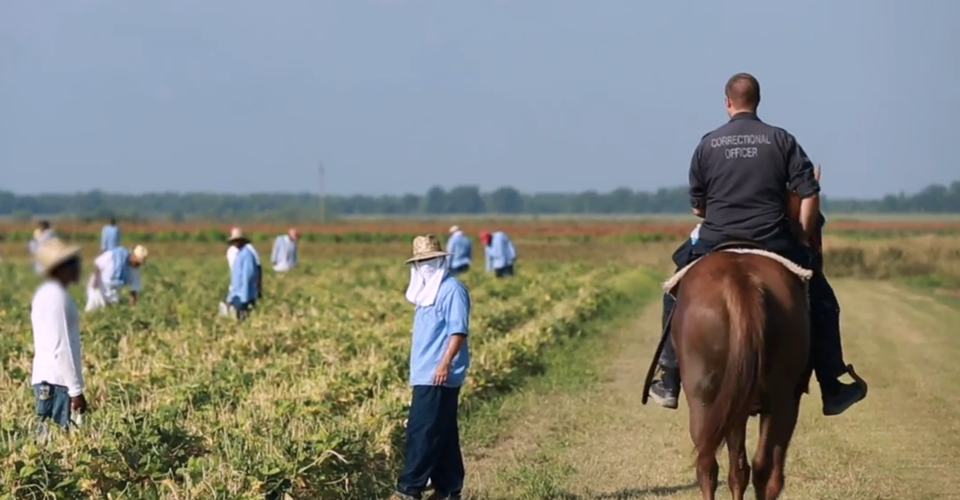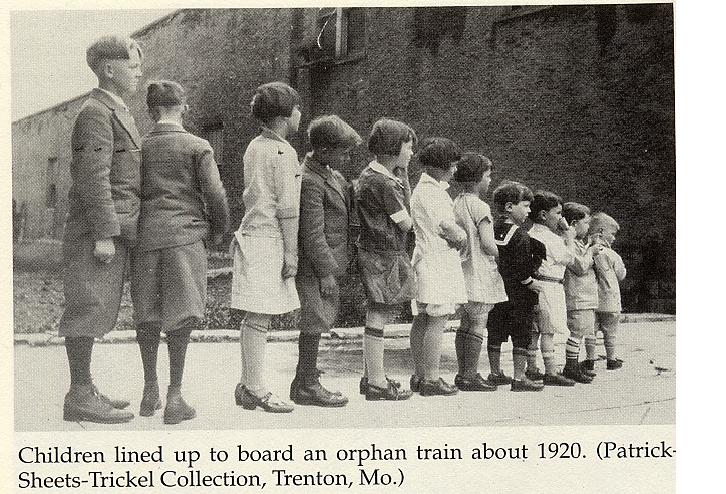Blog #84 – Convict Leasing and the New Jim Crow

“Work, warden Cain posits, is an important part of the rehabilitative process. Prison labor provides a way to pay society back for the costs of incarceration.”
If embed doesn’t work, use link to watch Angola for Life: http://www.theatlantic.com/business/archive/2015/09/prison-labor-in-america/406177/
Between the film, Slavery by Another Name, and the article in the Atlantic, “American Slavery, Reinvented,” we have seen how African Americans have been systematically affected by prisons. After Reconstruction, as we saw in the film, prison acted as another form of social control that arbitrarily put black people behind bars and forced them to work in dangerous conditions. This was known as convict leasing. Many black prisoners helped rebuild the South after the Civil War by working in mines, factories, and other industries. It was industrialist John Milner from Birmingham, Alabama who envisioned the convict leasing system as a way to help industrialize the South after the Civil War. Prisoners had little economic value, unlike the previous slavery system, because these prisoners could be replaced if they are overworked, died, or injured on the job. Prisoners were allowed to be whipped, and the bottom line, as always, was about productivity and profits. These prisoners were 50-80% cheaper than paid labor, so it made economic sense for the industrialists to lease convicts. Morally, however, that’s a different story. Harvest time saw an increase in arrests for trumped-up charges, the most notorious being vagrancy or loitering. And because Black Americans represented over 30% of the prison population, higher than the demographic average of 12% of the American population, Black Americans came to be associated with crime and danger. We still see this today with the shooting of Trayvon Martin and other African Americans who are killed in circumstances where whites doing pretty much the same thing somehow survive.
Debt peonage, or debt slavery, had been outlawed in America in 1867, but was used by landowners as a cheap source of labor after Reconstruction.
“The most corrupt and abusive peonage occurred in concert with southern state and county government. In the south, many black men were picked up for minor crimes or on trumped-up charges, and, when faced with staggering fines and court fees, forced to work for a local employer would who pay their fines for them.”
When President Teddy Roosevelt cracked down on debt peonage, hundreds and hundreds of Black Americans wrote to him asking for his help in freeing relatives. The Alabama cases appeared to be examples for the rest of Southern landowners, especially when TR pardoned the men on trial.
Today, prison has been called the new Jim Crow because of its adverse effects on Black Americans. See the chart below to get an idea of how many people of color are imprisoned vs. white people.

Today, there are more Black people involved in the criminal justice system than were enslaved in 1850, according to Michelle Alexander, the author of The New Jim Crow. Felons who have served their time can be discriminated against in housing, voting, education, and employment, all because they’ve been in jail and have served their time. Some of the laws of the 1980s and 1990s that cracked down on the crack cocaine and crime epidemics during those decades adversely affected people of color more than it had whites, especially in the prosecution of crimes involving drugs. For instance, the Anti-Drug Abuse Act of 1986 had stiffer penalties for crack cocaine use than for powdered cocaine, which came down hard on black communities more than it did white communities. Alexander believes that prison works as a new racial caste system that replaced Jim Crow laws outlawed in the 1960s by the Civil Rights Movement.
In the article, “American Slavery, Reinvented,” it describes how prisoners who are deemed healthy enough by the prison physician can be put to work. If a convict refuses to work, he/she can be thrown into solitary confinement, losing the opportunity to visit with their family, and loss of good time served. 2.2 million people are incarcerated, the highest number in the world, according to the article, and some of them work in jails that had been prison “farms” or “plantations” after Reconstruction, like Angola in Louisiana or Parchman Farm in Mississippi. Some of these convicts are employed in call centers, and also do work for military manufacturers or sewing clothes for Victoria’s Secret. Nor is any of the prisoners’ work covered by any existing laws that prevent free workers from being exploited by employers. Also, being mentally ill increases your chances of being in prison. And, factors like illiteracy, poverty, mental illness, and drug addiction increase your chances of going to jail. These are issues that transcend prison and cross over into the social and public health realms.
But should we feel sorry for these prisoners and ex-cons? The Atlantic article talks about how “prison labor provides a way to pay society back for the costs of incarceration, as well as a pathway to correct deviant behavior and possibly find personal redemption.” Because that’s what prison is for, right? Rehabilitation? Or is it to lock up those members of our society deemed too dangerous to be out among society? Are all the 2.2 million in prison irredeemable people? Are some of them innocent? Another argument for prison work can be seen in this quote:
“Why should prisoners sit with idle hands when the rest of us must work to put a roof over our heads and food in our bellies? Perhaps the low-to-no-wages paid to incarcerated workers are a form of pay garnishment, a sort of compensation for the costs of [prison] room and board?”
Or. to take it one step further, why do criminals deserve our sympathy? Should prisoners get humane treatment, especially if they’re “murderers, criminals, and all manner of sinners and deviants”? The 8th Amendment prohibits cruel and unusual punishment, but that usually applies to the death penalty and other forms of abuse. Shouldn’t prisoners have their freedoms restricted b/c they have broken the law? We are not following the Hammurabi code of an eye-for-an-eye, but there is a feeling out there that prisons are for punishment and not rehabilitation.
Your informed opinion matters. Please make sure that you read the Atlantic article and take some time to watch the 13 minute video on life at Angola prison in Louisiana. My questions are:
- Should we reform our prison system to make it more responsive to those who have mental health issues or are petty criminals? Why or why not? Feel free to use the article’s arguments or your own.
- Has prison really changed from what we saw in Slavery by Another Name? Why or why not?
Due Thursday, March 10 by class. 300 words minimum.
More info on the school-to-prison pipeline: https://www.aclu.org/fact-sheet/what-school-prison-pipeline








